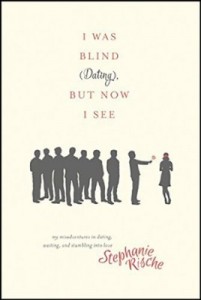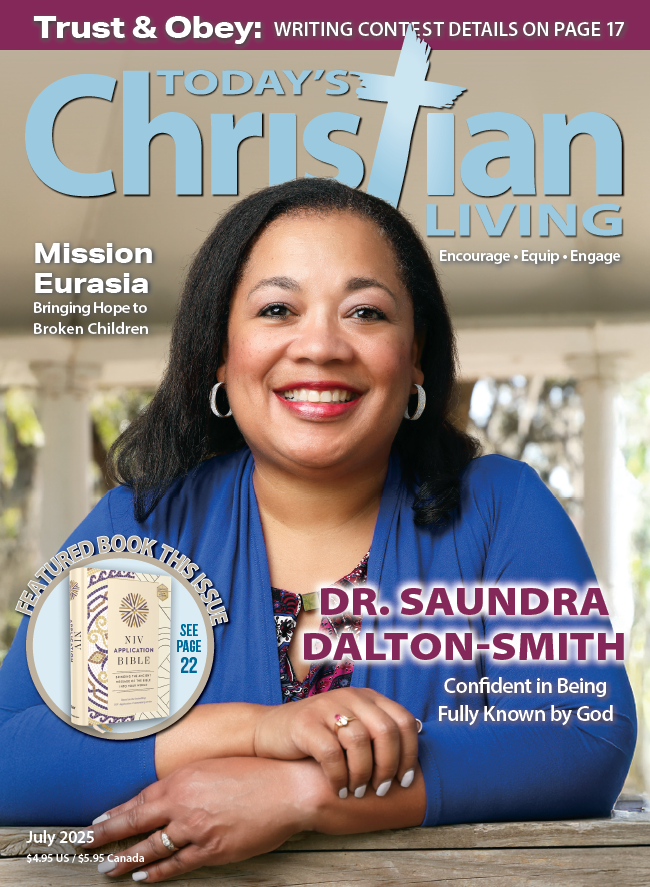By Stephanie Rische
She was planning her wedding, but with World War II in full swing, there was no silk to be found. How would she find a dress?
Valentine’s Day was around the corner (again), and I found myself dateless (again). Over the past decade or so, I had watched one friend after another don a white dress, and I rejoiced with each of them as I stood at the front of the church in my periwinkle/navy/red dress. But I was starting to ask God a little more urgently now: Would it ever be my turn?
I was glad for a distraction that February. My dad’s parents were celebrating their sixtieth anniversary, and I was hosting a family party for them. I tried to get my brain around that number. Six decades of life spent with the same person. Almost three-quarters of their lives.
They’d been through so much together in those sixty years. Twelve children. An army of grandchildren. Even some great-grandchildren. There had been times when the ends barely met and Grandma had to get creative to make dinner stretch for a dozen growing kids. Grandpa had returned home in one piece from one war, and they’d narrowly missed having to send their six boys off to another. There had been ER trips, illnesses, and health scares, including Grandpa’s recent stroke. Yet through it all they’d been faithful. To their God, to their family, to each other.
On the evening of their anniversary, my uncle loaded Grandma and Grandpa up in his car, and all the local relatives converged to celebrate. After we finished our cake, someone pulled out the lone wedding photograph of my grandmother, beautiful and wide-eyed in her elegant silk gown. I’d always loved that picture, imagining her preparing for a simple church wedding as quickly as she could after Grandpa returned from World War II—on a Tuesday morning, no less. But it wasn’t until that evening that I heard the story of the dress.
Grandma told us that since silk was needed overseas for the war effort, it was extremely hard to come by in the 1940s. But my grandmother, spunky woman that she is, remained undeterred as she planned her wedding. She wrote a letter to her fiancé requesting that he send a used parachute from Europe so she could have it made into a dress.
Sure enough, the package of white silk arrived, and under the seamstress’s deft fingertips, the object that had once been a symbol of war and tragedy was transformed into something new and beautiful.
I tried to imagine the emotions that must have flooded Grandma as she opened that package. Nothing would erase the difficulties Grandpa had experienced in the war—the deaths he felt responsible for, the buddies who didn’t come home, the missions he shouldn’t have survived. And nothing would take away the pain of Grandma’s years of waiting as she worried and prayed over his safe return.
God didn’t magically take all that pain away. But somehow all those memories got stitched together into the fabric of the silk parachute as they began their new life together. The token of what had separated them was transformed into a resplendent dress, a tangible sign of their love.
The kind of heartache I’d experienced paled next to what Grandma had gone through. Sure, maybe I wouldn’t be getting chocolate hearts from anyone on Valentine’s Day, but I also didn’t have to wonder if I’d be getting a telegram with bad news. Still, I wondered if there was a lesson for me in the parachute. Maybe the painful things in our lives don’t have to reflect the pain alone; maybe, under God’s deft fingertips, they can become symbols of the redemption he’s weaving together, one stitch at a time.
Excerpt taken from I Was Blind (Dating), but Now I See by Stephanie Rische (Tyndale House Publishers, 2016).
Stephanie Rische is a senior editor of nonfiction books at Tyndale House Publishers, as well as a freelance writer for publications such as Today’s Christian Woman, Christian Marriage Today, and her.meneutics. She and her husband, Daniel, live in the Chicago area. You can follow Stephanie’s blog about everyday moments of grace at stephanierische.com.










